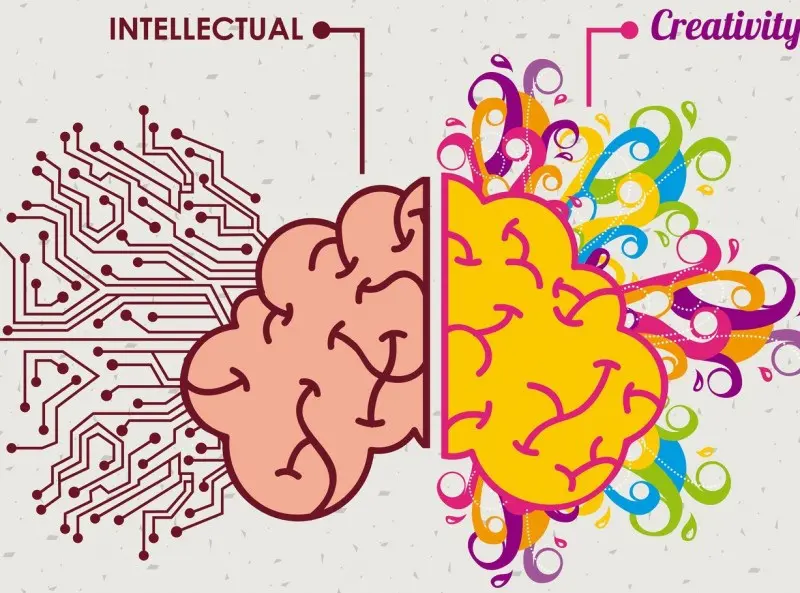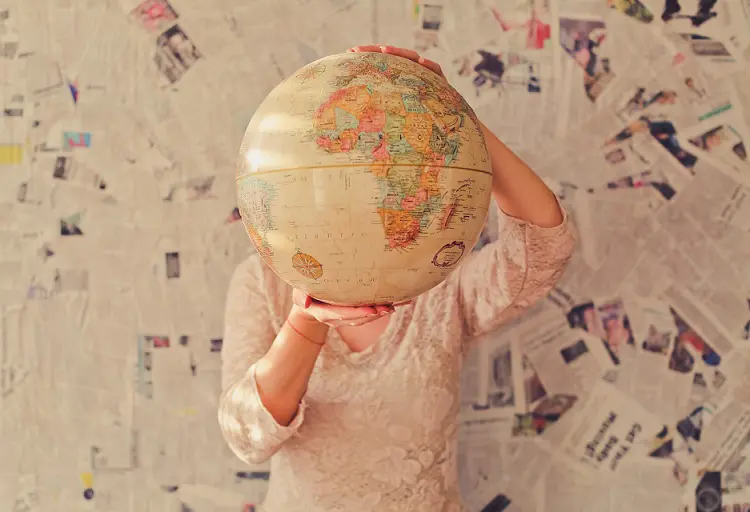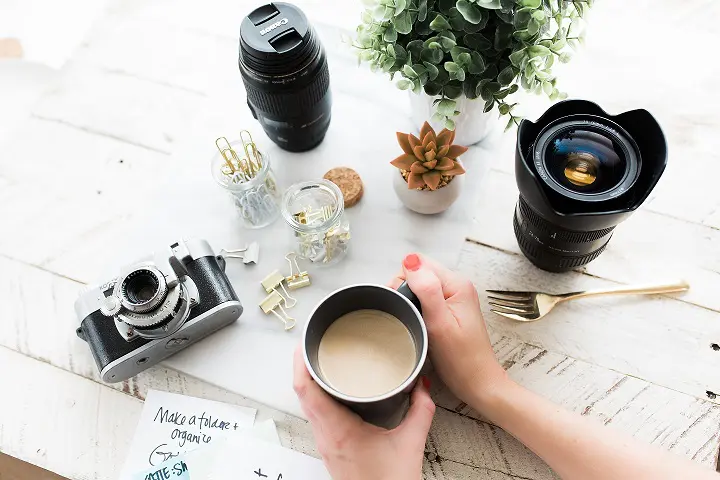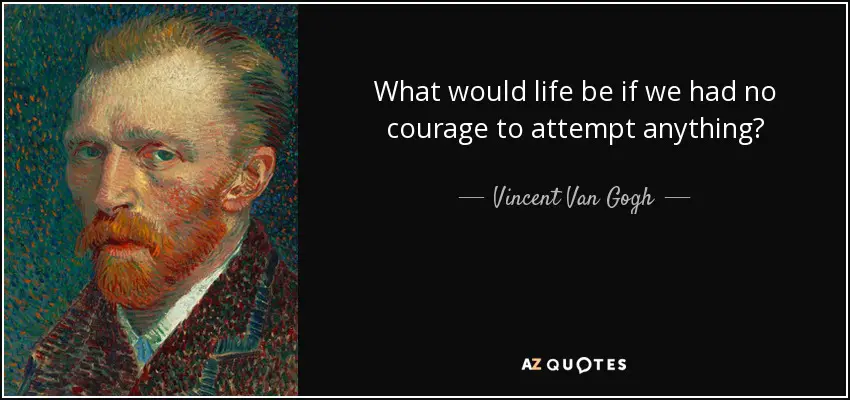This article was contributed by Lesley Vos.
Creativity is the new black. Again. While some research insists you can’t be creative if you don’t have a particular cluster of genes and characteristics of brains, others believe it’s possible to unlock and develop creativity. To do that, consider your lifestyle, mindset, and… habits.

“Others have seen what is and asked why. I have seen what could be and asked why not. ”
― Pablo Picasso
Tons of articles live online, telling about the habits of highly creative people. Psychologists agree on the direct linking between daily routine and its influence on our minds. So, it seems those willing to become ingenious should rethink their customs, develop a positive lifestyle, and forget about habits preventing the awakening of their creative genius.
But what habits actually help to unlock creativity? And how to know if your present lifestyle leaves creativity to be desired?
Good news first:
Make sure to develop these fifteen habits that influence the right brain, responsible for imagination, colors, and creativity in your life. (Well, at least some believe so.)
Image source: Power of Positivity
15 Habits That Help to Unlock Your Creativity
Some also believe that creative people are complex and paradoxical. Long live the stereotypes! Yet, the research suggests that creativity involves many social influences and traits in a person.
These behaviors help to develop creativity and turn it into a daily routine.
So why not give it a try?
1) Wake Up Early
Benefits of early rising speak volumes:
It’s the time when a frontal cortex aka a creativity center of your brain has its peak activity, and that is why many creative thinkers are so productive on mornings.
Benjamin Franklin woke up early to plan out his day. Ernest Hemingway wrote on mornings because it was the time when no one could disturb him. So did Toni Morrison before her children woke up, and Howard Schultz used early mornings to send motivational letters to employees.
How can you develop this habit?
Wake up early every day and don’t take naps, even if tired. It will make you go to bed earlier, and, eventually, you’ll adjust to the schedule and join the team of creative early risers.
2) Go In For Sports
The Stanford study has it: 90% of people are more creative after they physical training. And that’s the reason why many creatives have made sports their daily routine.
Physical exercises stimulate endorphins secretion, giving you the right mood to disconnect for a while and focus on creative tasks afterward. They help to reflect on what you do, avoid stresses, and stimulate positive thinking which is crucial for a creative approach to work.
It doesn’t mean you should run to a gym once you decide to become creative. Yes, push-ups and sit-ups worked for Kurt Vonnegut, but long distance walks could be a worthy alternative to hard cyclic exercises: research proves they increase a brain volume.
Dickens, Beethoven, Muir… They all walked daily to stimulate thinking. Richard Branson moves beyond: he runs on mornings.
3) Read
Books help brains function better: they broaden imagination, enhance empathy, inspire, and even decrease chances to have Alzheimer’s disease! When people read, they train brain muscles and memory for learning out-of-the-box solutions.
Develop a habit of reading daily. It can be fiction books or business literature, whatever. You might also want to check books teaching to unlock creativity and practice the techniques their authors suggest.
Don’t ignore writing practices as well. Freewriting, paraphrase, unsent letters, or long lists — all they work for catching your Muse and generating creative ideas.
4) Travel
Image source: Unsplash
Want to be creative? Travel. A lot. (See Jacob’s travel blog here)
It’s an efficient way to broaden perspectives and have a positive impact on your creativity. But to make it work, don’t simply visit countries but explore them. Make it a habit to learn about their cultures, understand differences in customs and traditions, and make connections to your personal world view.
According to studies, travels enhance flexibility and cognitive complexity. No surprise why so many creatives enjoy it: Ernest Hemingway drew inspiration from Spain and France, Mark Twain sailed around the Mediterranean, and Benedict Cumberbatch had spent a year at a Tibetan monastery and taught English there.
“New sounds, smells, language, tastes, sensations, and sights spark different synapses in the brain,”
Brent Crane writes in The Atlantic. A clear correlation exists between travels and creative output, so open your heart to spending time abroad and exploring everything there.
5) Keep the Schedule
Most creatives schedule their daily routines, debunking the myth about wild and unstructured lives all genius supposed to have. Psychologist William James explains how scheduling impacts creativity: as he says, it
“frees our mind to interesting fields of action.”
Bestselling authors Stephen King and Haruki Murakami support this habit by sticking to a strict writing routine: King doesn’t allow himself to leave the table until he finishes writing 1, 000 words, and Murakami writes from 4 until 9 a.m.
No one says you should plan your every minute. Instead, set 15-20 minutes per day on creative thinking: it’s a good start for newbies.
6) Daydream
Image source: Unsplash
Though some see daydreaming as a negative thing influencing our bad mood and associated with a lack of productivity, neuroscience points to it as a great solution for finding creative approaches to problems.
The 2012 study suggests that daydreaming can help us consolidate memories and enhance long-term decision making, which is more about patience than impulsivity. And the 2013 meta-analysis concludes that it helps to “connect our past and future selves together,” providing with creative inspiration.
So, allow yourself to wander for a few moments during a day, as it can boost creativity faster than your waste efforts to focus.
7) Observe
“Creativity is just connecting things. When you ask creative people how they did something, they feel a little guilty because they didn’t really do it, they just saw something. It seemed obvious to them after a while. That’s because they were able to connect experiences they’ve had and synthesize new things.”
Creative people are observers. They watch people around, notice the tiniest details, and take that information for creative expression.
English novelist Thomas Hardy kept a journal to write down everything he saw or heard. So did Joan Didion who noted her observations about people and events. Maybe it’s time to join them and become more attentive to what happens around? Your notes have big chances to turn into creative insights later.
Develop a habit of observing the world and people around it: this is an unlimited source of inspiration and creative decisions.
8) Work From Coffee Shops
Image source: Unsplash
Many of us work in one place, believing it’s close to impossible to stay productive in different environments. However, studies show it’s beneficial to creativity.
Did you know that Joanne Rowling wrote the ideas for Harry Potter on a napkin in a train? And what about working from coffee shops, which background noise is proven to help you focus and make you perform better on creative tasks?
Changing the environment brings stimulation that will flourish your creativity. More than that, coffee itself stimulates memory and helps to think positive, increasing a serotonin level in our brains.
So, drink coffee (green tea is great, too) and develop a habit of working in different environments for better creativity.
9) Meditate
The 2012 study says that people practicing open-monitoring meditation are better at generating ideas.
So, little wonder that director David Lynch advocates meditation this much! In his interview with The Talks, Lynch shared his experience, saying that meditation increased the enjoyment of working and “the enjoyment of everything.”
This mental practice also helps to set intentions, become diligent, and expand your awareness. It enables people to tap into what Lynch calls the “ocean of pure vibrant consciousness inside each one of us” by synchronizing remote regions of our brains, so critical for the creative process.
Yoga and mindfulness techniques do the same. So you can try to develop a habit of practicing these mental exercises, too.
10) Procrastinate
Do you know procrastination can have a positive impact on your productivity?
Copywriter Joseph Sugarman suggests that procrastination helps us boost imagination: when you delay a task, it allows to find the best solution later. Also, it improves memory and enhances our ability to think creatively by providing more time for free thinking. Besides, it teaches to find a balance between work and rest.
But to make procrastination work for you, know how to use it to your benefit:
- Interrupt work in the middle
- Find time for deep work
- Work in small sprints
11) Risk
Image source: AZ Quotes
Part of doing creative work is taking risks. Getting out of your comfort zone is a part of it, too.
As Steven Kotler wrote in Forbes, the connection between risk taking and creativity is “deep and meaningful, and it’s one that’s often overlooked.” He tells about Albert Einstein who was an avid sailor though didn’t know how to swim: taking risks equipped Einstein’s brain with ideas for innovations by making long-distance connections, so beneficial to creativity.
And what about the idea of Twitter? Jack Dorsey and his team took the risk to live it out, and they won.
Don’t be afraid of taking risks in various aspects of your life. Still, it stands to reason to avoid jumping off the deep end.
12) Take Naps
It doesn’t mean you should sleep for the whole day to become creative, but make sure to carve out some time for relaxation:
Research has it, naps enhance right brain function (as far as you remember, it’s responsible for creative activity) and improve alertness. So, follow the example of artist Joan Miró who took five-minute naps after lunch; or, gain inspiration from Vladimir Nabokov who included a two-hour nap in his daily schedule — and unlock your creativity.
After all, such a habit is not that difficult to develop, is it?
13) Stop Multitasking
Multitasking is the worst enemy of your creativity and the awful strategy to get more done. In fact, it can damage your brains: you lose focus, lower the quality of work, and can’t hit goals.
If you have a habit of multitasking, give it up as soon as you can. Also, try to avoid interruptions at work: you should be mentally focused to complete tasks, and workplace interruptions take 23 minutes from you each time when appear.
Develop a habit of completing one thing at a time to help your creativity breathe.
14) Spend Some Time Alone
Image source: Unsplash
People who are creative feel comfortable in solitude. If it’s not about you, then it’s time to develop a habit of spending some time alone and experience all benefits of such environment.
Being alone means having the mental space to reflect on yourself and your ideas, which is necessary to the creative process. As psychologist Rollo May writes, one should “overcome the fear of being alone” and have the capacity for “constructive use of solitude” to become creative.
“It’s hard to find that inner creative voice if you’re … not getting in touch with yourself and reflecting on yourself,” Scott Barry Kaufman, Ph.D., adds.
15) Have Fun
The proven fact is, having fun increases optimism, improves concentration, and engages the creative brain. It boosts motivation and decreases stress levels, either. That is why a majority of employers give particular emphasis to company cultures and teambuilding activities.
So, don’t be so serious. Make it a habit to fun from time to time.
Also, don’t be afraid of acting like a kid: studies have found it’s a perfect way to unleash creativity, especially if you work in a guideline-ridden workplace. Behave like everything is new to you, and you will come up with creative ideas and unexpected insights.
And now, for the bad news:
Many consider creativity an inherent gift, but it isn’t so. Creative genius snoozes inside of you, and now you know the habits to encourage its awakening. In the meanwhile, other customs might block and kill it! So it happens you struggle for creativity, while some habits of yours struggle against it.
Oops, isn’t it unfair?
What are those habits? What can you do to avoid them?
7 Habits to Forget For Better Creativity
- Waiting for the right time. If you wait for the right moment to voice opinions or ideas, here goes the news for you: this moment is now. While you’re waiting, others express your ideas right here.
- Perfectionism. If you want to be creative, forget about perfection. Creative ideas can’t be perfect. You can strive to improve them, but perfection is nothing but an illusion preventing you from actions.
- Taking everything too seriously. Yes, life is demanding and challenging, but you shouldn’t let those challenges affect you in a negative way. Face them and consider them a chance to get creative with solutions.
- Comparing yourself to others. Just accept the fact you are different from others, so comparing your ideas to those of colleagues or friends would be silly. You need own standards of creativity and success.
- Fear of mistakes. They are an inevitable and integral part of a creative process. Make assessing your mistake a habit, get to the root, and start acting differently to find creative solutions.
- Choosing the first solution. This habit doesn’t motivate you to play with alternatives, therefore killing your creative bones. For creatives, finding one solution is just a beginning of the process.
- Considering yourself noncreative. Even if your ideas differ from others’, that doesn’t mean others are creative and you aren’t. Don’t be a pessimist, and don’t think negatively about yourself. Don’t kill your creativity in its germ.
Once you identify habits that influence your creativity, it’s time to work with them and change a lifestyle so that your habits could boost spirits and unleash that positive energy for more creative ideas.
After all, we all live once. So let’s make the most of it!
—
Lesley Vos is a professional web writer and guest blogger. Contributing articles on writing, productivity, and self-development, in words she trusts. A passionate reader and traveler, Lesley shares her works on Twitter; so feel free to follow her there.






First habit to break is the notion of right and left brain. It’s simple-minded bs, much like the notion that we only use 10% of our brains, and it is completely untrue.
Some interesting things to think about when you get stuck.
Nice read Lesley.
thank you